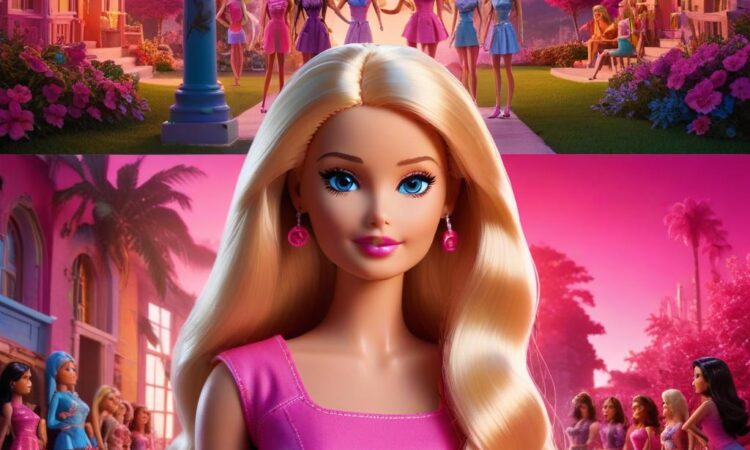Controversy: ‘Barbie’s’ Unexpectedly Dark Turn Sparks Debate
Greta Gerwig’s ‘Barbie’ has taken the world by storm, but not without controversy. The film’s exploration of feminist themes and its surprisingly dark undertones have ignited heated debates about its message and impact on audiences. Critics are weighing in on the film’s success and its potential to spark meaningful conversation.
A Feminist Fairy Tale or a Problematic Portrayal?
One of the most discussed aspects of ‘Barbie’ is its exploration of feminist themes. The film presents a world where women hold positions of power and influence, challenging traditional gender roles. However, some critics argue that this portrayal is overly simplistic and ignores the complexities of real-world feminism. They contend that the film’s utopian portrayal of a female-dominated society is unrealistic and potentially harmful, creating a false sense of progress and undermining the ongoing struggle for equality.
Others applaud ‘Barbie’ for its bold approach to gender representation. They argue that the film’s message of empowerment and self-acceptance is crucial, particularly for young girls. They believe that ‘Barbie’ provides a much-needed counter-narrative to the traditional narratives that often limit women’s aspirations and potential.
The Shadows Beneath the Plastic
While ‘Barbie’ has been praised for its comedic moments and vibrant visuals, it also delves into some surprisingly dark themes. The film explores existential anxieties, the pressures of societal expectations, and the complexities of female identity. Some viewers have found these darker elements unsettling and jarring, feeling they clash with the film’s overall tone and message.
The film’s exploration of disillusionment and the challenges of living up to societal expectations resonates with audiences who have grappled with similar anxieties. However, some critics argue that these themes are not handled with enough nuance and depth, leading to a superficial and ultimately unsatisfying exploration of these complex issues.
The Power of Conversation
Despite the controversy surrounding its message, ‘Barbie’ has undoubtedly sparked important conversations about gender, identity, and the power of representation in media. The film has prompted viewers to re-examine their own beliefs and biases, and to engage in meaningful dialogue about the issues it raises.
Whether one agrees with the film’s message or not, its impact is undeniable. ‘Barbie’ has become a cultural touchstone, prompting viewers to think critically about the world around them and the messages we consume. As the debates surrounding the film continue, it is clear that its influence will be felt for years to come.
A Deeper Dive
The following sections delve deeper into the specific aspects of ‘Barbie’ that have sparked controversy:
Feminism and Representation
- A Closer Look at the Film’s Feminist Themes
- The Strengths and Weaknesses of ‘Barbie’s’ Portrayal of Women
- The Importance of Representation in Media
Dark Themes and Existential Anxiety
- Exploring the Film’s Underlying Darkness
- The Impact of ‘Barbie’s’ Existential Themes
- A Psychological Analysis of the Film’s Dark Undertones
Critical Reception and Audience Responses
- A Review of the Film’s Critical Reception
- Audience Reactions to ‘Barbie’s’ Message
- The Impact of the Film on Social Media Conversations
The Legacy of ‘Barbie’
- The Film’s Potential to Spark Social Change
- The Lasting Impact of ‘Barbie’ on Film and Culture
- The Future of Feminist Representation in Media
Conclusion
In conclusion, ‘Barbie’ is a complex and multifaceted film that has ignited important conversations about gender, identity, and the role of media in shaping our perceptions. While its message may be open to interpretation, its impact is undeniable. The film’s exploration of feminist themes, its surprising dark undertones, and its ability to spark meaningful dialogue make it a film that will continue to be analyzed and debated for years to come.

